Reflecting on the 2020 presidential campaign, most voters find it was interesting rather than dull (64% vs. 34%), but also say it was too negative (76%) and not focused on important policy debates (72%).
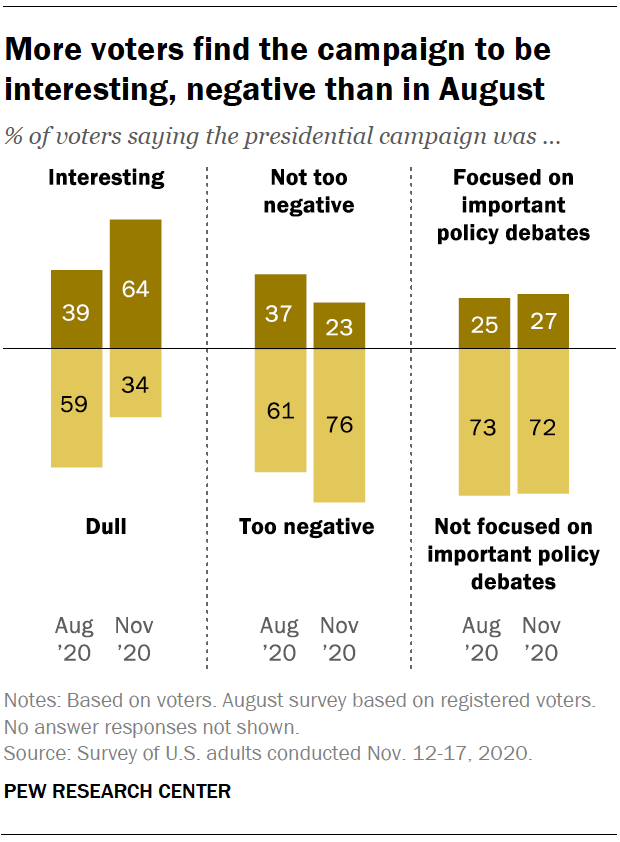
Nearly two-thirds of voters (64%) say, in retrospect, they thought the campaign was interesting. This is a significant shift of opinion since August, when just 39% of registered voters said the campaign was interesting and most (59%) said they found the campaign dull.
Today, roughly three-quarters of voters (76%) say the campaign was too negative. In August, 61% of registered voters said they thought the campaign was too negative.
Only about a quarter of voters (27%) say the 2020 campaign was focused on important policy debates, little different than the share of registered voters who said this in August (25%).
Biden voters (72%) are more likely than Trump voters (56%) to say the campaign was interesting, though majorities in both groups now say this. In August, only about four-in-ten supporters of each candidate said the campaign was interesting.
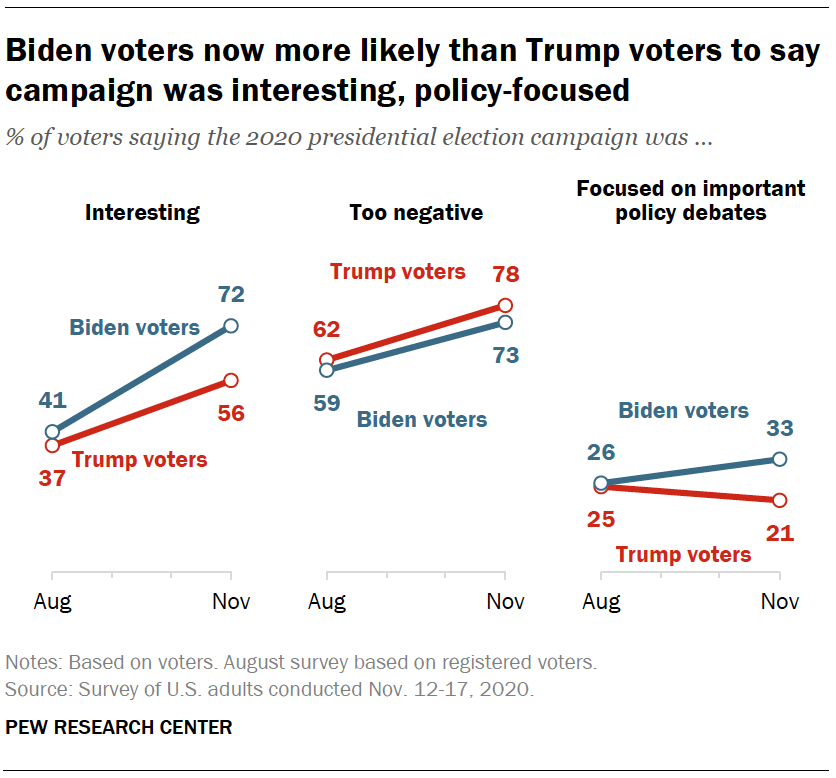
Both Biden and Trump voters are also more likely to say the campaign was too negative than they were earlier in the year. More than seven-in-ten Biden (73%) and Trump voters (78%) say the campaign was too negative. About six-in-ten (59% and 62%, respectively) said this in August.
Just a third of Biden voters and an even smaller share of Trump voters (21%) say the 2020 campaign was focused on important policy debates. However, Biden voters are somewhat more likely to say this today than they were in August, while the share of Trump voters saying this is slightly lower than the share of his supporters who said this in August (25% now, 21% then).
Most were satisfied with the choice of candidates
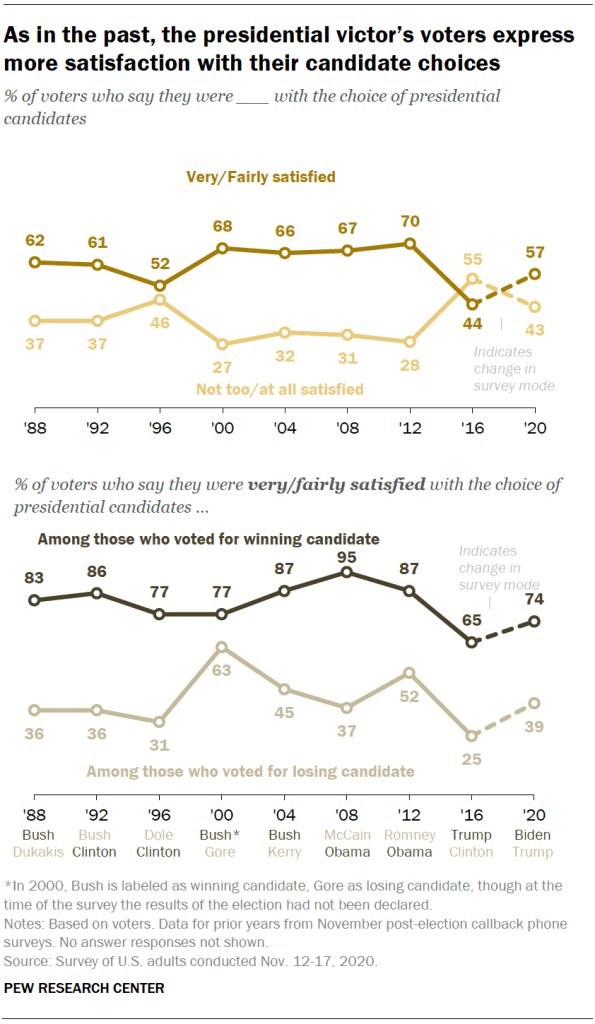
Overall, 57% of voters say they were very or fairly satisfied with the choice of presidential candidates this year, while 43% say they were not too or not at all satisfied with the choice of presidential candidates.
Four years ago, just 44% said they were very or fairly satisfied with the choice of candidates. (Note: Post-election surveys from 1988-2016 were conducted by phone, while the latest survey was conducted online; there may be modest mode differences on this question.)
Among those who voted for Biden, nearly three-quarters (74%) say they were very or fairly satisfied with the choice of presidential candidates, compared with 39% of Trump voters who say they were satisfied.
Just over half of Biden voters said their vote was more ‘against Trump’ than ‘for Biden’
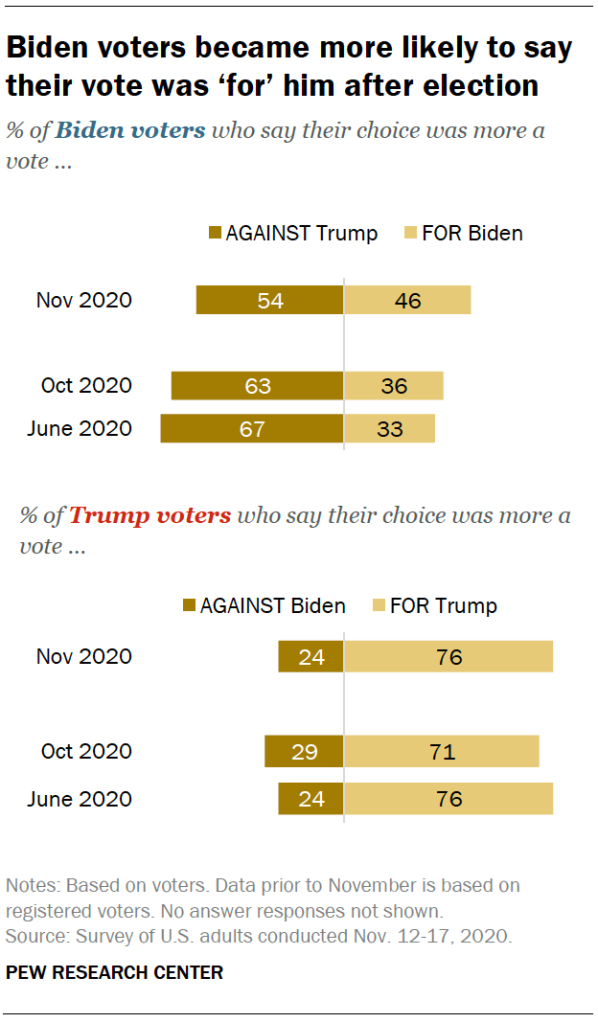
As was the case in surveys conducted before the election, Trump voters remain more likely than Biden voters to consider their vote more of a vote “for” their preferred candidate. About three-quarters of Trump voters (76%) say their choice was more a vote for Trump, while 24% say their choice was more a vote against Biden.
Biden voters are more divided. A narrow majority (54%) say their choice was more a vote against Trump, while 46% say their choice was more a vote for Biden.
This general pattern is consistent with previous presidential elections involving incumbent presidents, with supporters of the challenger more likely to say their choice is more a vote against the incumbent than supporters of the incumbent were to view their support as against the challenger.
Slightly larger majorities of Biden supporters in June (67%) and October (63%) said their choice was more a vote against Trump than say this in the post-election survey (54%).
The share of Trump voters saying their vote was more a vote of support for Trump than against Biden is little different than it was in preelection surveys.
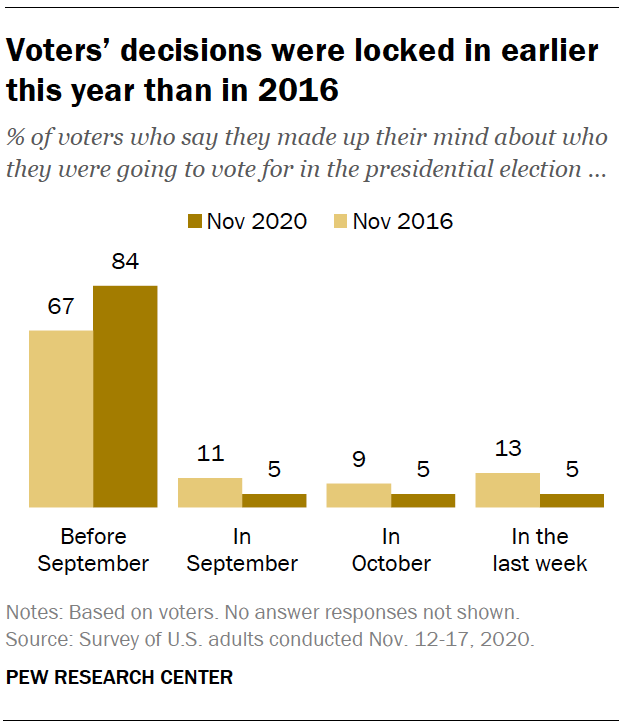
More than eight-in-ten voters (84%) say they made up their mind about who they were going to vote for in the 2020 presidential election before September. By comparison, in the wake of the 2016 election, a smaller – though still substantial – majority of 2016 voters (67%) reported having made their mind up before September.
This year, just 5% of voters say they made up their mind about their vote in the last week before Election Day. In 2016, 13% said they had made their mind up in the last week.
Trump voters are slightly more likely than Biden voters to report having made up their mind about their vote in the last week before Election Day (6% vs. 4%).




